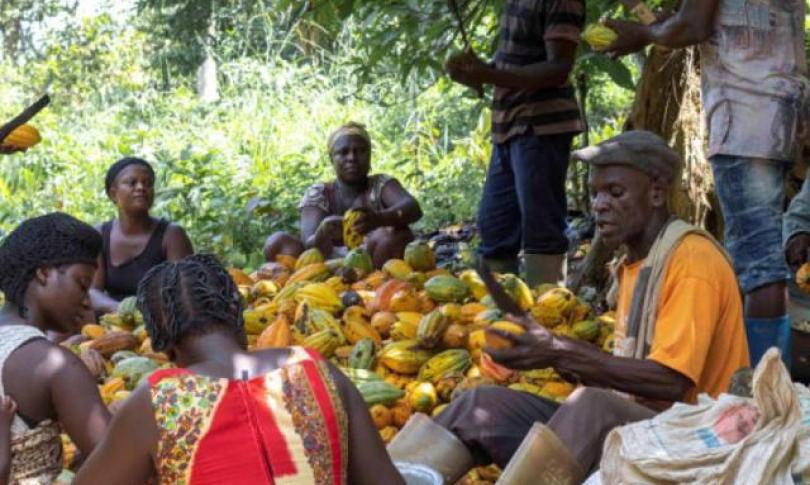
Setting up of a farmer’s welfare fund is one of the core mandates of Ghana’s cocoa sector regulator COCOBOD since its inception. But after 36 years of its existence, the Ghanaian cocoa farmer is becoming poorer each passing day as they lament the outcome of their toils over the years has not reflected their gains.
The average cocoa farmer earns approximately 18 million cedis annually or less provided the best farm management practices are adopted on a two-acre land as against the fat salary of a COCOBOD staff per month according to the Ghana Agriculture and Rural Development Journalists Association, GARDJA.
Section 27 of the COCOBOD Act 1984 enjoins it to establish a fund to be known as the Farmer’s Welfare Fund and at the end of each financial year transfer a sum of not exceeding 10 per cent of the net profit of the board for the farmers' benefits - interest-bearing welfare loans, farmers’ refresher courses, a scholarship scheme for farmers’ wards, and other purposes aimed at enhancing the welfare of the cocoa farmers. But despite the huge contribution of the cocoa sector to the country’s revenue and gross domestic product GDP, the farmers say they are not given what is due them by their regulator.
Moses Djan Asiedu, the secretary to the National Board of Directors and Administrators, World Cocoa Farmers Organization, Ghana said, after toiling through the planting season, the cocoa farmer is denied his or her entitlement. He warned of an imminent shut of Ghana’s cocoa production in the next 10 years to come, as the older farmers are quitting the sector daily. “The older farmers are retiring from the cocoa farming due to the meager income and poor living conditions. This could mean an impending shut-in cocoa production in 10 years to come if nothing is done about it”.
At a workshop dubbed "cocoa advocacy dialogue" spearheaded by the Ghana Agriculture and Rural Development Journalists Association, GADJA in partnership with Send Ghana and Rain Forest Alliance, Calvin Doe, a young cocoa farmer quizzed “Why go into cocoa farming when COCOABOD worker takes ‘’fat salary’’ at the expense of the poor farmer”. For him, looking for greener pasture elsewhere is an alternate for him and his peers since their efforts in cocoa production are not yielding the desired result. Stating that, the traditional land tenure system is no longer encouraging farmers as the conditions of giving away a third or half of proceeds to the land owner remain a difficult decision.
The president of the Ghana Agriculture and Rural Development Journalists Association, GADJA Richmond Frimpong, says COCOBOD has over the years made the Ghanaian cocoa farmer poorer due to low prioritization of the needs of the farmer. “COCOBOD is the reason our farmers are getting poorer each day”. He pointed out roads leading to these cocoa farms are in a deplorable state yet every year there are budgetary allocations for those same roads which have always been misappropriated. Bemoaning why cocoa clinics which are to cater for the farmers are situated in the cities while the farmer languishes in pain and ill-health in the forest somewhere.
In his closing remarks Dr Affail Monney, president of the Ghana Journalists Association, GJA, stated that it is an inditement on Ghana as a country for farmers to toil and will not enjoy the benefits of their labour. He explained, every worker works to enjoy the outcome of his or her effort and if that fails to happen, then there might be no need to work at all. He called on the media to take the lead in the crusade for fairness and transparency in the cocoa sector.
